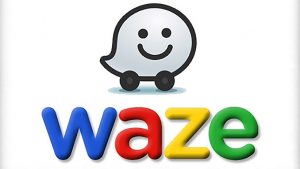 Google has not been one to back out of a competitive market. In fact, you could say that they are quite fond of such environments; and it appears they are ready to challenge the status quo yet again.
Google has not been one to back out of a competitive market. In fact, you could say that they are quite fond of such environments; and it appears they are ready to challenge the status quo yet again.
The technology company, of course, first made waves as the latest and greatest search engine, which changed the way people interact with the internet—and each other. With the development of Gmail, the Chrome web browser, and the Android mobile operating system, Google (and, actually, parent company Alphabet Inc) continues to shape the way users engage with technology.
And Alphabet has chosen to take on another major project on the rise right now: ride sharing.
Uber, of course, leads the way in the new ride-sharing market; but the company has also launched another division called UberPool which focuses on carpooling instead of single fare cab rides. Carpooling has already become a major player in this industry but Google hopes that Waze will, yet again, offer users something different.
While Uber (and Lyft, et al) focuses on netting drivers money, Waze aims at helping riders save money. It is almost a reverse-type of economic model, but one that many people will likely find intriguing. In essence, drivers factor in standard trip expenses and riders may also have to factor in access to the aging-out public transportation system—which is, in some places, nonexistent—but the hope is that riders can put their commuter money towards the benefit of another vehicle—and person—through a symbiotic relationship as opposed to a potentially exploitative one (not that ride-sharing is exploitative, but the nature of traditional commerce can be).
With Carpool, Google and Waze want to help drivers and commuters save money, not make money. People with cars have to factor in the costs of gas as well as the wear and tear on their vehicle. People who need rides have to factor in aging (or sometimes nonexistent) public transportation infrastructure. Waze allows people to instead put their commuter money toward someone else’s vehicle, and (theoretically) both sides win.
“Waze Carpool makes it easy to help a neighbor or colleague in your area,” Waze says in a blog post. “Detours are minimal so your drive to work is almost the same, you get to ride in the carpool lane, and the rider you pick up helps cover your commuter costs so why not?”
The main objectives for Carpool is to help clear up traffic by reducing the amount cars on the road. It’s unclear whether Google Waze looks to make any money with the service; the info page for Carpool only says that “riders pitch in for gas.”
